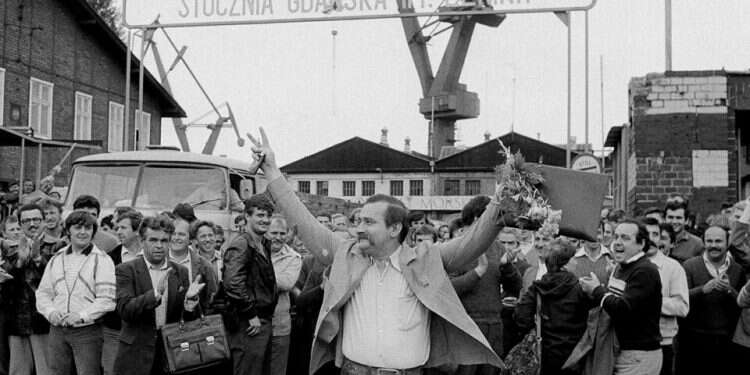Almost thirty years ago, in 1993, as the first democratically elected postwar president of Poland, I bode farewell to Russian troops departing my country for good. Thus ended over half a century of occupation and totalitarian rule. Contrary to many of our friends in the West, however, history did not end for us that day.
Follow Israel Hayom on Facebook, Twitter, and Instagram
Knowing how fragile and incomplete our success still was, we pursued membership in transatlantic institutions to anchor our progress in something larger than ourselves – a community of nations organized around the principle of liberty, from which we were unjustly torn away. History vindicated our determination sooner than I would have liked. At the same time as prosperity, democracy and civility flourished in our part of liberated Europe, the menace of autocracy, graft and chauvinistic imperialism carried the day in Russia and soon turned on the West.
The Jewish people are familiar with the struggle that the Ukrainian nation currently endures. They too, have been denied the right to a state of their own, their very nationhood has been questioned. In this moment of hardship for Ukraine, I wish that the people of Israel see a reflection of themselves in the Ukrainian people, among whom they have lived for so long. After all, the struggle for freedom and human dignity is now being waged on lands that have been home to the Jewish nation for a thousand years, along all of Central and Eastern Europe. Jewish heritage has been imprinted in its material legacy – look at some of Judaism's most sacred sites that draw thousands of pilgrims to Ukraine – as well as among its people.
David Ben Gurion, Menachem Begin and Golda Meir, the founding figures of modern Israel, were all born on lands that Poles, Ukrainians, and Jews used to share for so long. In the "Solidarity" movement that toppled communism in Eastern Europe, some of my best advisors were of Jewish ancestry, like Adam Michnik and Bronisław Geremek. Finally, it cannot be omitted that President Zelenskyy, who so courageously leads Ukrainians in their struggle for sovereignty and integrity, is a Ukrainian Jew himself.
Due to tragic historical circumstances, this dear and beloved land of ours was within living memory the site of the worst crimes and atrocities in human history and ceased to be the common home for Slavs and Jews. However, in the following decades the Poles, alongside many of our neighbors, restored hope to Eastern Europe by overthrowing dictatorship, rejecting foreign repression, and establishing strong self-government based on personal liberty and economic freedom. The Jewish people achieved a similar success a few decades earlier, and although we no longer share the same land, our peoples share the same experience of taking a firm hold of their own future, which was for centuries denied to them.
Today, as the Ukrainian nation, so close to both Poles and Jews, is waging its own struggle for self-determination, it is both our moral and political duty to support it. Those of my readers who emigrated to Israel from Russian-speaking communities of the former Soviet Union, and thus feel sympathy to Russia, should also stand on the side of Ukraine. The triumph of Ukrainians can only bring closer the collapse of Putin's corrupt regime and give the Russian nation an example of democracy, and soon hopefully economic prosperity that they can aspire to at home.
The Jewish people are one of the few in the world who, like us in Central and Eastern Europe, know the true horrifying meaning of mass deportations and forced labor camps, such as the one in which my father was worked to death by Nazi aggressors. The Russian government's invocation of the struggle against Nazism to invade and massacre an independent nation is a gross blasphemy against human dignity and it spits in the face of all those who lost their loved ones to Nazi war crimes, like myself and many of this paper's readers. Especially those of us who carry that legacy cannot remain indifferent to this present injustice.
Fortunately, there is much we can do. As citizens, we are able to influence our governments, and as individuals, we can make little contributions to great causes. This combined strength of millions of little voices was the greatest power I ever wielded as the leader of "Solidarity", years before I became president. It is the power that turned over the world thirty years ago.
Subscribe to Israel Hayom's daily newsletter and never miss our top stories!
As the old Polish slogan from the 1980s says, "there is no freedom without Solidarity". Today, I call on all peoples of the world who love and value the freedom to stand in international solidarity with the Ukrainians. As the Poles and Jews know very well, liberty, security, and prosperity are not natural or immutable conditions. Their survival is a responsibility and requires selfless commitment and sacrifice. Let us do for the Ukrainians what no one did for us 80 years ago, so that the principles which made us safe and prosperous do not perish. We must do it – for their sake and ours.
Lech Wałęsa is a Polish statesman, dissident, and Nobel Peace Prize laureate, who served as the President of Poland between 1990 and 1995. The author acknowledges Wiktor Babinski for his collaboration on this piece.




